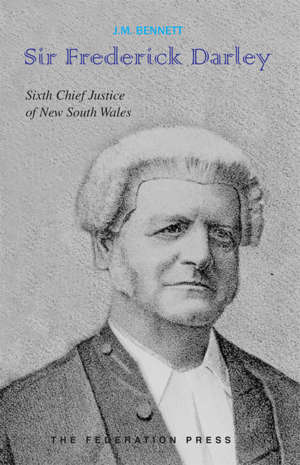Product Description
The career of Sir James Dowling, second Chief Justice of NSW (1837-1844), supplies a model of the working of patronage in the appointment of judges to British colonial service. Dowling’s advancement as puisne judge in Sydney, as acting Chief Justice during the absence on leave of Chief Justice Forbes, and a Chief Justice in succession to Forbes, depended on patrons. The principal was Lord Brougham, supported in England by Dowling’s influential journalist brother Vincent.
While he was not an outstanding judicial lawyer, Dowling was painstaking and industrious. His meticulous manuscript recording of court proceedings was an astonishing undertaking. This book reviews his contribution as judge and as ex officio Legislative Councillor. It traces prolonged litigation, disposed of before Dowling, concerning the proprietor of the Sydney Monitor, Edward Smith Hall. And it examines the bruising relations between Dowling and fellow judges W W Burton and J W Willis.
The NSW State Set of Lives of Australian Chief Justices, which includes, Sir Francis Forbes, Sir James Dowling, Sir Alfred Stephen, Sir James Martin and Sir Frederick Darley is available for $210.00 – to order the NSW State Set, click here.
CORRIGENDUMIn this title, Sir James Dowling, the material "Dramatis Personae" contains an error. The entry "HOWICK" should be omitted and the entry "GREY" should read:GREY, Sir George, Under Secretary (Political) for the Colonies, 1834-1835, 1835-1839.



